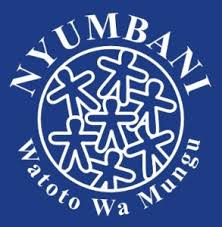The Vuela Volunteers 2024 receive the ACM Award for Social Responsibility.
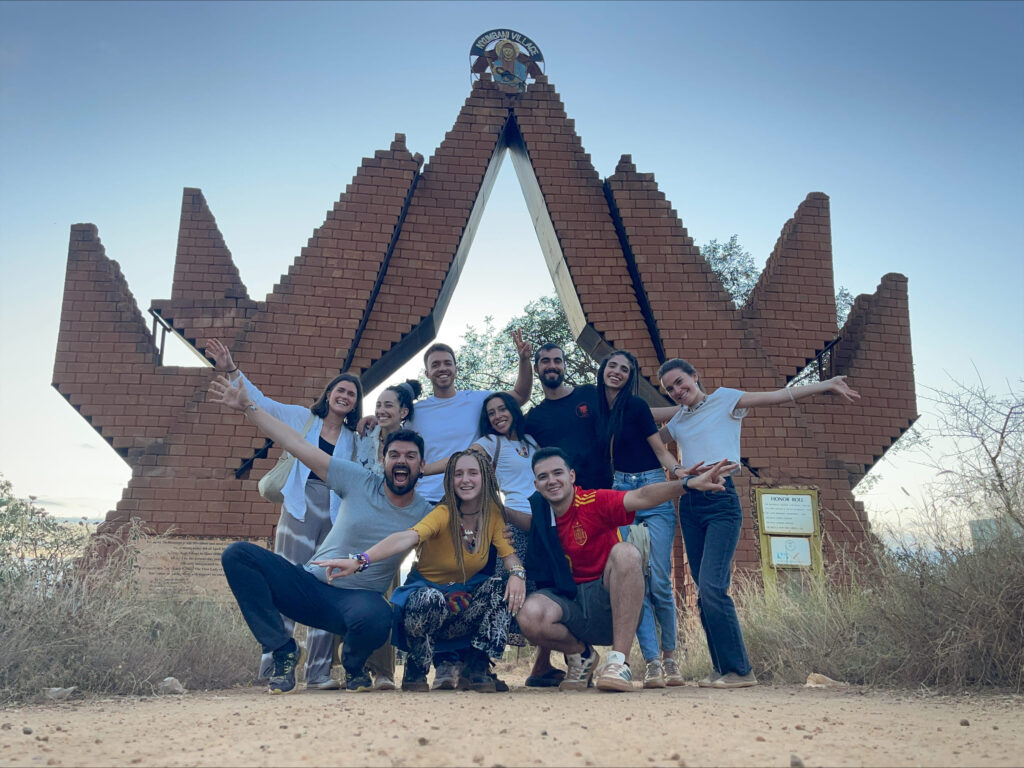
When the jury of the Aristos Campus Mundus Award for Best Practices in University Social Commitment announced its decision, the room erupted in spontaneous applause. The first prize was awarded to the Nyumbani Eco-Village Orphanage Project (Kenya), coordinated by Jesús Muñoz Muñoz, professor at Universidad Pontificia Comillas. Yet beyond the joy of recognition, what truly moved those present was the deeper meaning of this award: a living testimony that universities can become engines of social transformation, even thousands of kilometres away.
Every summer, through the VUELA international volunteering program, groups of students from Comillas and Deusto travel to Nyumbani. They don’t go to “help from outside,” but rather to walk alongside the community, sharing life, learning, and service. The project is not about assistance—it is about belonging and mutual transformation.
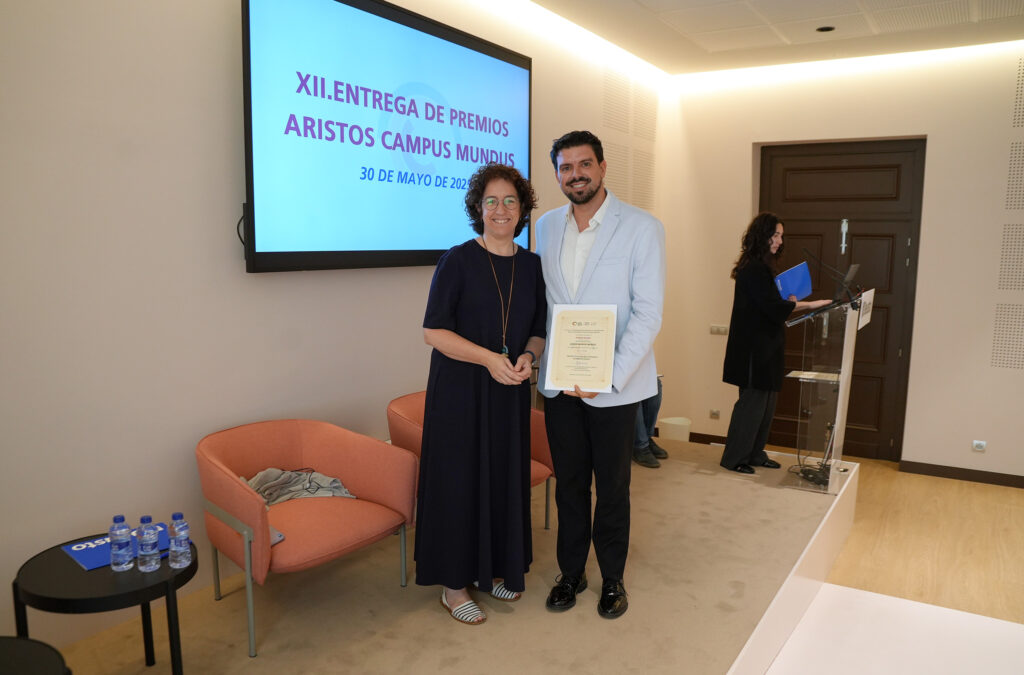
Copyright Jesus Munoz/Comillas University
The report of this summer’s activities offers striking figures: 411 windows repaired, 122 lightbulbs replaced, 146 hours of farming, 395 hours spent on the handicraft sales project, 351 hours dedicated to community competitions… But behind every number lies something deeper: stories of human encounters.
Read the full story on the Comillas University here
Volunteers spent mornings working in the fields, afternoons delivering supplies with the shushus, and evenings creating with the children in art workshops, talent shows, and school Olympics. Every gesture reflected a shared spirit: the conviction that we are all part of one global community, where caring for each other is the greatest lesson.
Perhaps the most moving moments were the weekly gatherings with the shushus. Through songs, basket-weaving workshops, hand massages, and tea shared under the Kenyan sun, bonds of complicity and affection were born. “They taught us the value of mutual care, the dignity of collective work, and the strength of resilience,” the volunteers recalled.
The project’s vision extends far beyond immediate needs. It’s true strength lies in promoting sustainable processes that empower the community itself. One of the clearest examples is the online shop where baskets, handbags, honey, and moringa produced in Nyumbani are sold. Thanks to this initiative, the shushus generate income to support the children while preserving their artisanal heritage.
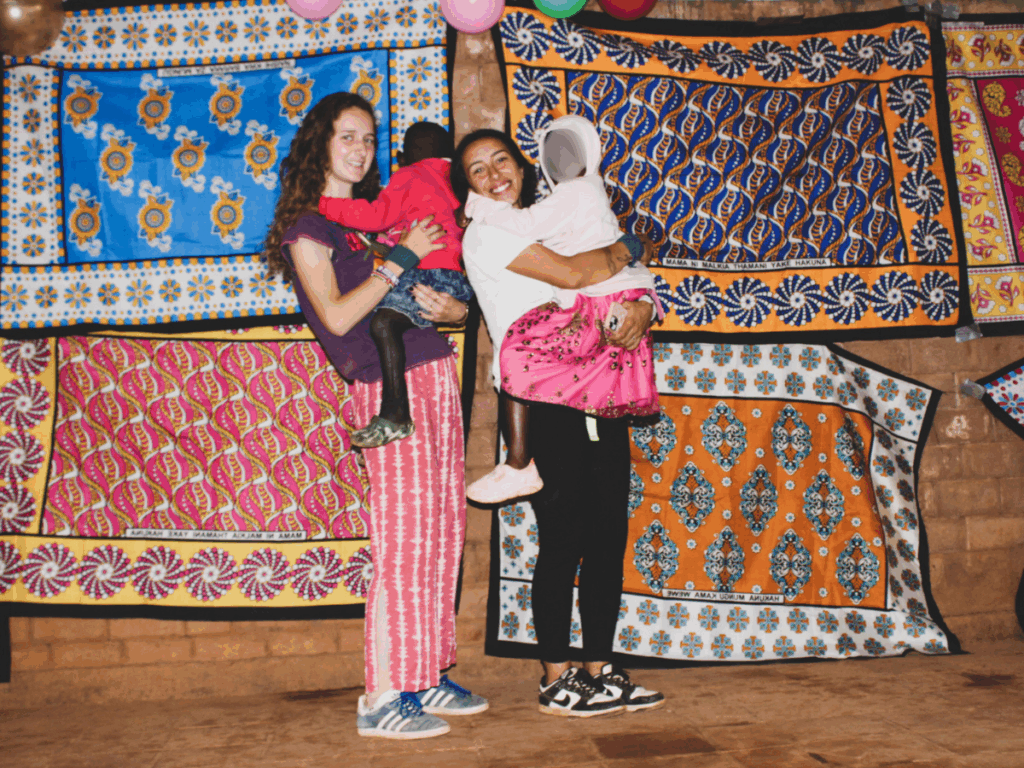
The volunteers also helped bring back to life key agricultural machinery, such as the moringa grinder and the sunflower oil press—tools that will open new sources of income and self-sufficiency. Other milestones included youth workshops on microcredits, improvements to the water system, the construction of communal bathrooms, and the purchase of mattresses and utensils for families.
As Jesús Muñoz puts it, “We are not here to impose solutions from outside, but to walk hand in hand with them, building on the strengths that already exist within the community.”
None of this would be possible without the solidarity chain that stretches from Madrid to Kitui. In Spain, families, friends, and supporters organized donation campaigns that filled the volunteers’ suitcases with school supplies, medicines, clothing, and toys.
At the same time, social media and the new website became powerful tools for raising awareness about HIV, mobilizing funds, and sharing Nyumbani’s story with the world. The results are impressive: over 62,000 views on Instagram reels, hundreds of interactions, new institutional partnerships —with organizations such as Cáritas Armada Madrid and the Rotarians of Burgos— and, most importantly, a tangible improvement in the daily lives of children and their caregivers.
The Aristos Campus Mundus Award recognizes projects that bring together teaching, research, and social commitment. In this case, honoring the Nyumbani Eco-Village Orphanage Project highlights a different way of understanding the university: as a space where knowledge and solidarity are intertwined to transform realities.
For Jesuit universities, the award is not an endpoint, but a call to keep strengthening initiatives that place justice, hospitality, and holistic student education at their core. As Muñoz explains, “Every volunteer comes back with the certainty that the most valuable learning does not come from books, but from people who teach us how to endure and how to dream.”
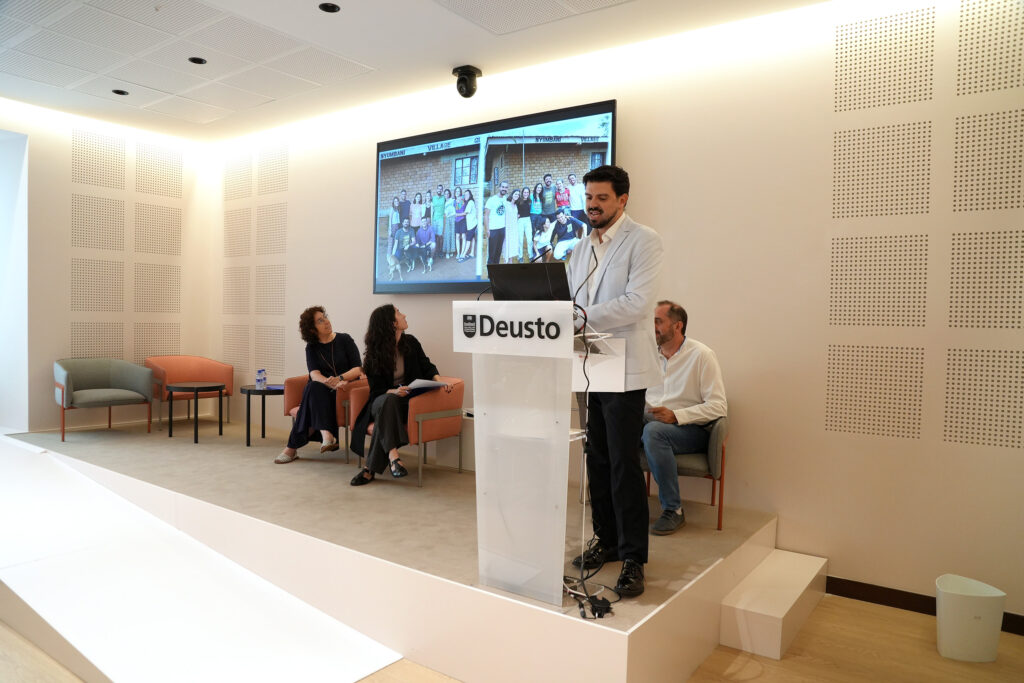
Nyumbani Village will continue to face challenges—scarcity of water, limited resources, stigma around HIV—but it will do so Supported by a network that grows each year. The Aristos Campus Mundus Award shines a light on this story, reminding us that true change is always born from empathy, cooperation, and shared commitment.
